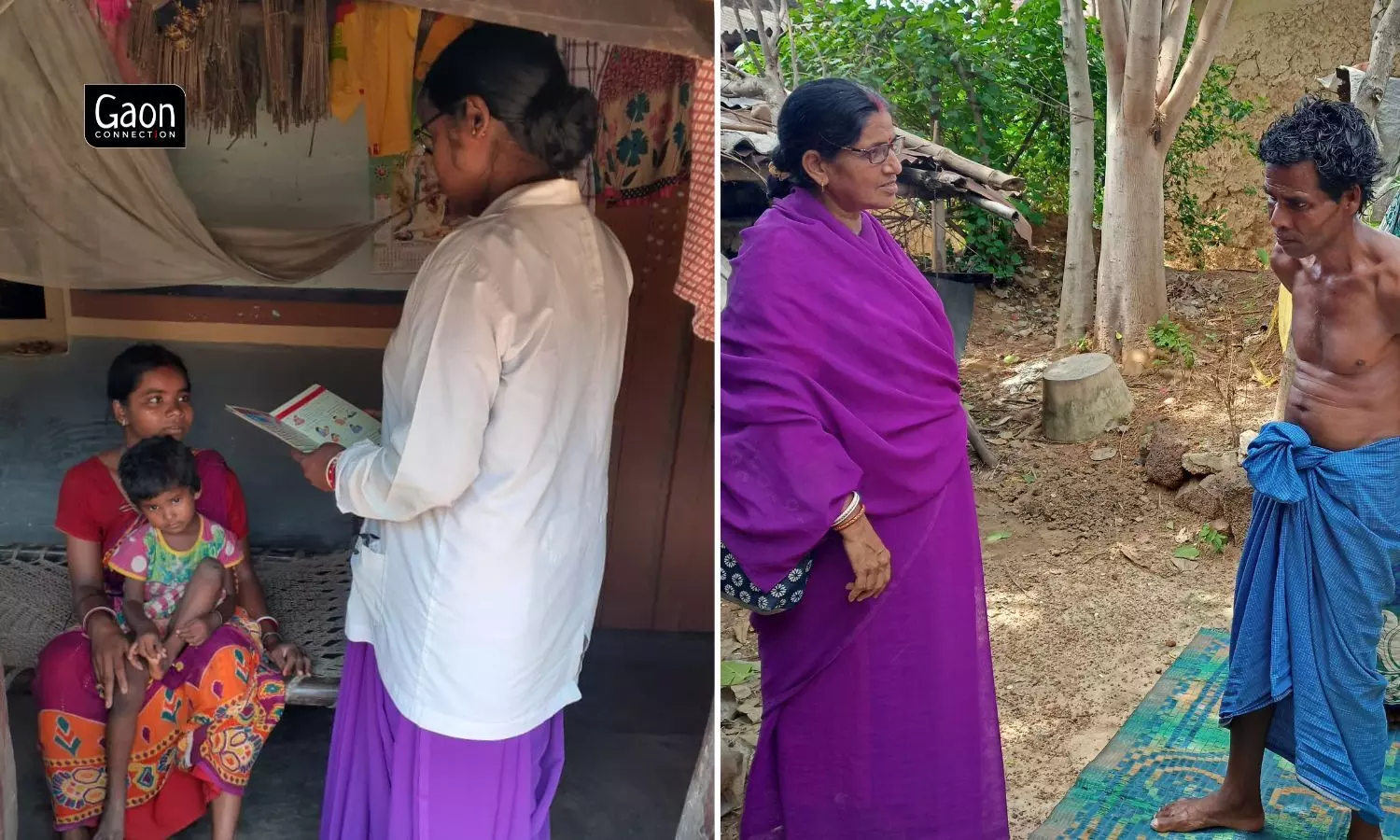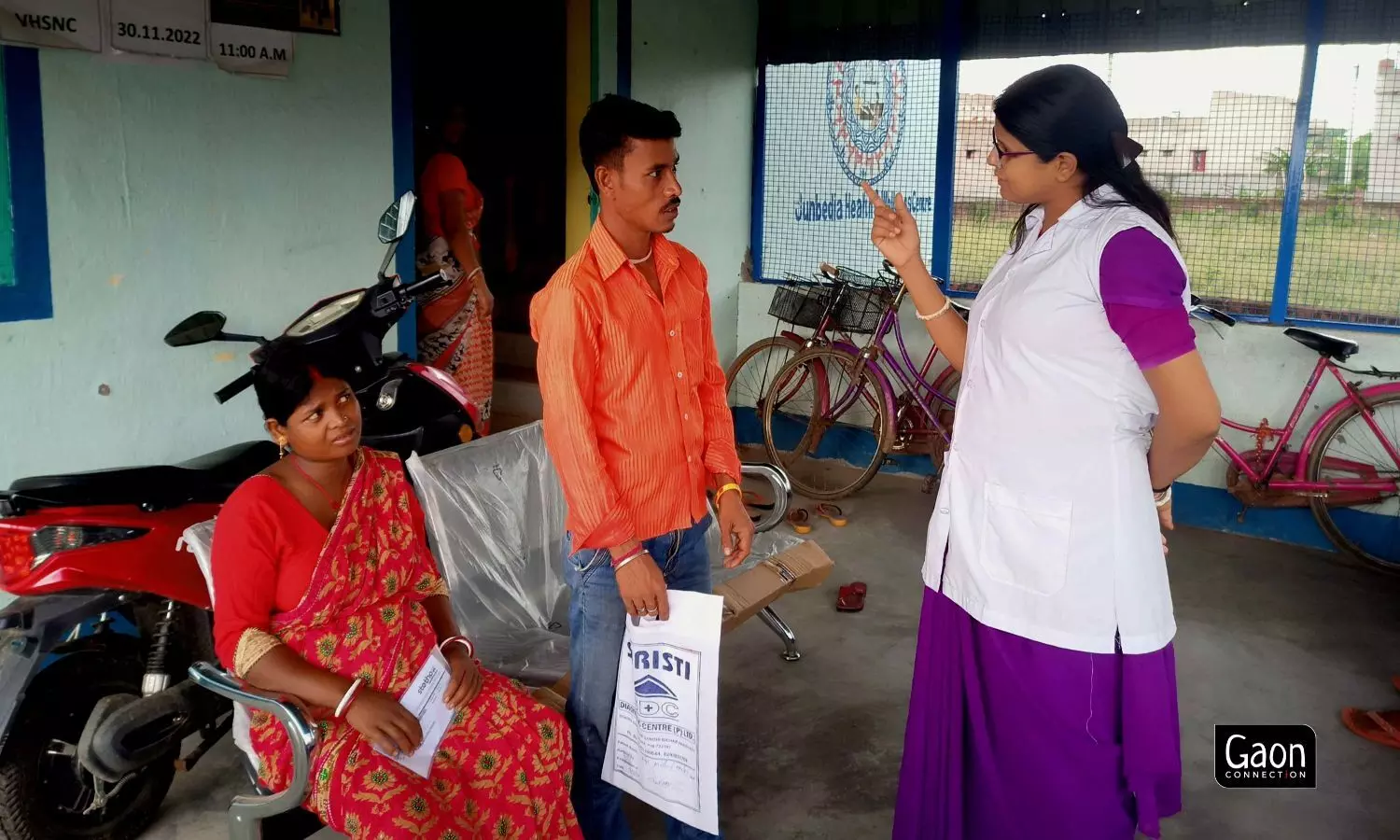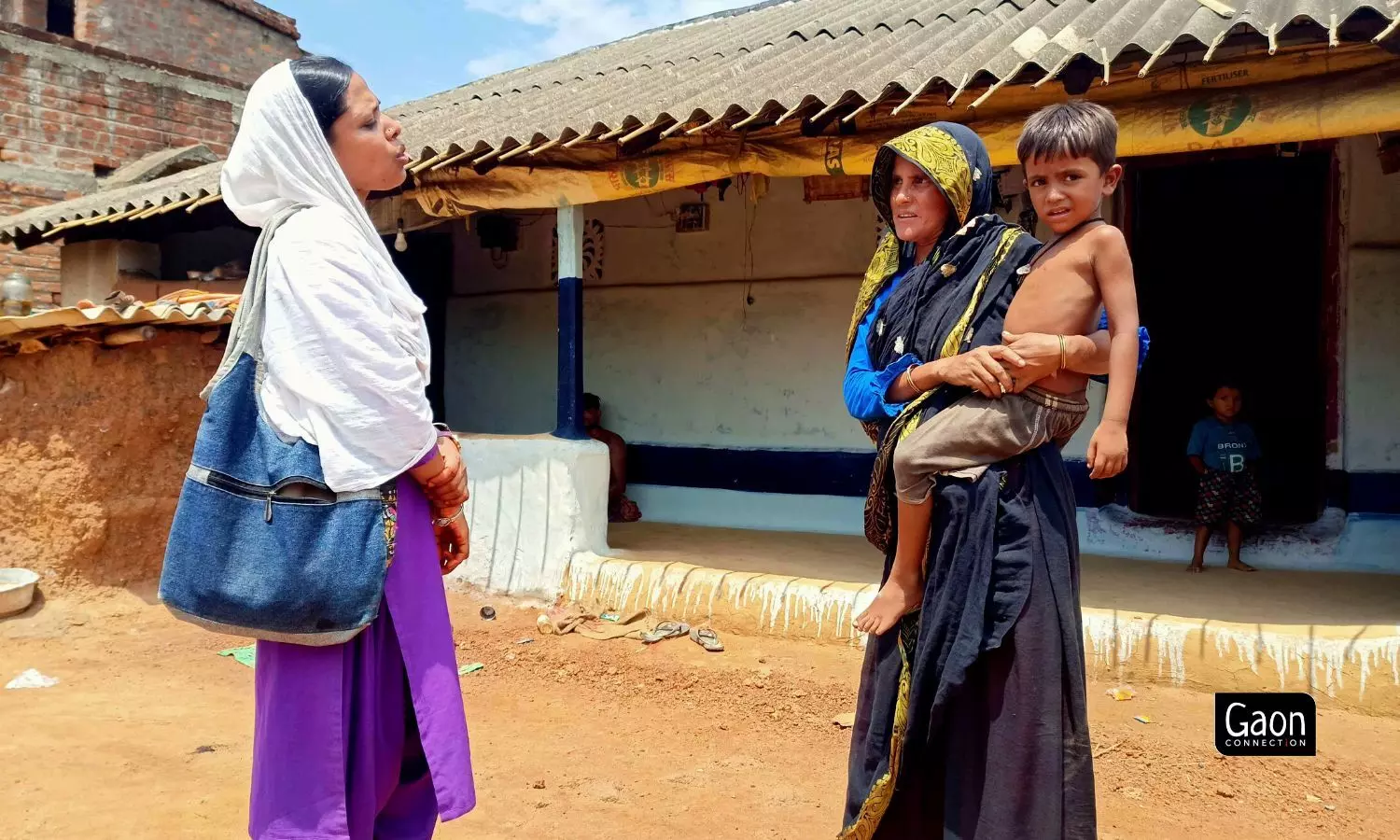Bankura, West Bengal
For Malati Hembram life and death are all part of a day’s work. And, it is the living who get priority with her, no matter how difficult the choice is.
“I remember the day my mother-in-law died. Her body lay at home waiting for the last rites to be performed, and my phone rang. It was a desperate cry for help from a pregnant woman in the village,” Malati recalled what had transpired two years ago.
Malati is an Accredited Social health Activist (ASHA), a part of the one million female frontline healthcare workforce who form the backbone of the country’s health mission.
She did not wait too long to respond to that phone call. She left home and reached the home of Mamoni Hembram who was in an advanced stage of labour. Malati called for an ambulance, which could not reach the village due to poor road and heavy rains. The ASHA worker then got the pregnant woman carried in a cot till the ambulance and took her to Ranibandh block hospital, about 20 kilometres away, where Mamoni gave birth to a healthy baby.
This is not an isolated episode for Malati, an ASHA worker who lives in the remote Bagdubi village in the tribal-dominated Ranibandh block of Bankura district in West Bengal. The village lies 221 kilometres northwest from the state capital of Kolkata. As an ASHA worker, Malati is available to respond to health emergencies any time of the day.

ASHAs in rural West Bengal provide both hope and last mile connectivity between the healthcare system and the villagers, especially rural women.
“I thought my baby would die. We had called for the ambulance in the night itself but it never came, probably because of the bad roads to the village. If Malati didi had not been there that day, my baby would have died,” a grateful Mamoni told Gaon Connection.
Also Read: An ASHA worker, with a polio-stricken leg, cycles door-to-door to deliver her health duties
The Government of India launched the National Rural Health Mission (NRHM) in 2005 to address the health needs of the rural population. As part of this initiative, the community of female health workers, ASHA, form the frontline of the healthcare system in rural India.
ASHAs like Malati connect the marginalised communities in remote rural areas to healthcare systems. But these female frontline workers are noticed only when they either cross swollen rivers to immunise kids, or they take to the streets and raise their voices to demand higher compensation for their work.
As part of its new series — Custodians of Rural Healthcare — Gaon Connection documents stories of ASHA workers and ANMs, nurses, and other women healthcare providers in rural India.
According to state government sources, West Bengal has 65,664 sanctioned posts for ASHA workers of which there are 55,634 ASHA workers. In the forested area of JangalMahal in Bankura district, a predominantly tribal area where Malati is an ASHA worker, there are nearly 2,100 of them, working in areas of maternal and child health, family planning services, health and nutrition education, environmental sanitation, immunisation , etc.

ASHA workers complain that despite providing crucial health services in rural areas, they are not adequately compensated.
These ASHAs provide both hope and last mile connectivity between the healthcare system and the villagers, especially rural women.
For Sajifun Bibi Khan, ASHA worker Jahima Khatun is nothing less than an angel in disguise. Sajifun, who lives in Punisol village in Onda (Bankura district), had already miscarried once and she was terrified that it would happen the second time around too.
“The first time I got pregnant, I received no prenatal care. My family did not take me to the hospital and wanted me to give birth at home. My baby died and I almost died too,” Sajifun told Gaon Connection.
“But during the second pregnancy, ASHA worker Jahima Khatun came home and registered my name at the Punisol health centre. Regular tests were done and she ensured I took the necessary medicines on time. She advised my family that on no account should I give birth at home,” narrated Sajifun.
Her baby boy was born healthy at the Bankura Medical College and Hospital. He has even been inoculated, Sajifun added.
Also Read: WhatsApp, Radio and Recorded Phone Messages Help Fight the War Against Filariasis
Jahima Khatun, the ASHA worker who counselled Sajifun and her family members, is a 27-year-old graduate. “As a result of our efforts in this village the mother and child mortality rate has decreased. Women are participating in the family planning programme,” she told Gaon Connection. But more needs to be done, she added.

ASHAs like Malati connect the marginalised communities in remote rural areas to healthcare systems.
ASHA workers do not just address health issues of rural women. They also provide several other crucial health services, including Directly Observed Therapy (DOT) for tuberculosis treatment.
Gorachand Mandal, a 45-year-old brick kiln worker, and his family members had given up hope of him surviving tuberculosis (TB). “I thought it was the end for me too. But, ASHA worker Mithu Choudhury saved my life,” Mandal, who lives in Dabra village, eight kilometres away from Bankura town, told Gaon Connection.
Mithu Choudhury took him to the Anchuri health centre, 15 kms away, and he was treated for TB there. The ASHA worker ensured Mandal took his medicines regularly and even spoke to the brick kiln owner where he worked to give him back his job once he recovered fully.
Sumita Mandal, an ANM (Auxiliary nurse and Midwife) said that ASHA workers have to work in rural areas in the Directly Observed Therapy (DOT) programme of the Indian government. DOT trains a healthcare worker or other designated individual (excluding a family member) to provide the prescribed TB drugs and to ensure the patient swallows every dose.

According to state government sources, West Bengal has 65,664 sanctioned posts for ASHA workers of which there are 55,634 ASHA workers.
“Timely action by ASHA workers has reduced the death rate rapidly, and also made people more aware of healthcare,” the ANM told Gaon Connection.
Also Read: “I have to wait for nine months to be paid Rs 600 incentive for one delivery”
However, ASHA workers complain that despite providing crucial health services in rural areas, they are not adequately compensated. For all their efforts and for being life savers, the ASHA workers are paid Rs 4,500 a month.
“We were told we would be given smartphones to update health records, but we have not got them,” Purnima Bishoyi, ASHA from Kotulpur, told Gaon Connection. “We are also supposed to get Rs 100 a month to recharge our phones, but we don’t get that regularly either,” complained Mithu Choudhury.
“ASHA workers work in adverse conditions. They surmount many challenges in order to reach medical help to the people,” Shyamal Saren, Chief Medical Officer, Bankura, told Gaon Connection. “We are very proud of them, and we try to support them as much as we can,” he said.
This story is part of Gaon Connection’s new series ‘Custodians of Rural Healthcare’ which focuses on stories of frontline healthcare workers in rural India.




















